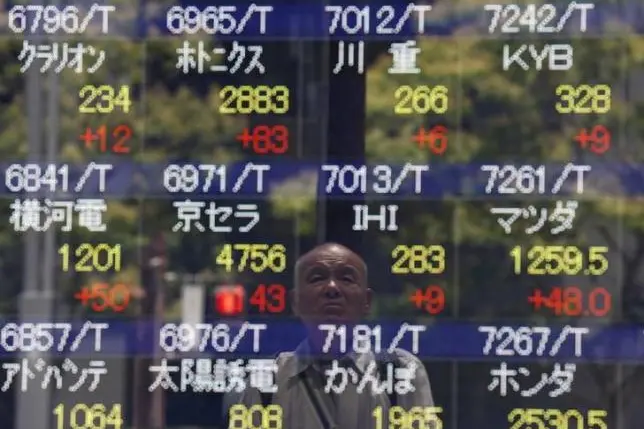PHOTO
LONDON - Sovereign wealth funds' (SWFs) redemptions from global stock and bond markets fell by about a third year-on-year to $38.1 billion in 2017, preliminary data from research firm eVestment showed on Wednesday.
Fourth quarter outflows slowed to $2.5 billion, the lowest level since SWF redemptions from third-party asset managers began in the third quarter of 2014, suggesting the high watermark of selling has passed.
The figures from eVestment, which collates data from about 4,400 firms managing money on behalf of institutional investors, are preliminary as fund managers holding about a fifth of the prior quarter's assets have still not reported, but the directional trend is not expected to change, the firm said.
Oil-backed sovereign funds were put under pressure when oil prices
LCOc1
tumbled from their mid-2014 highs of $115 a barrel to below $30 in January 2016, forcing governments to dig into their rainy-day SWFs to fill budget gaps.
In 2015 redemptions topped a whopping $80.1 billion as SWFs liquidated stocks and bonds to raise cash. The selling continued throughout 2016 with some $58.8 billion of outflows.
But with oil prices rising in 2017 to trade at around $65 a barrel by year-end, the level of redemptions has slowed.
Fourth quarter redemptions were down from a revised $5.5 billion in the third quarter, and from $7.6 billion in the second quarter.
However Peter Laurelli, global head of research at eVestment, noted that 66 percent of investment products still experienced net outflows, with only a third registering inflows.
Among those with net inflows were passively-managed non-U.S. equity strategies, which pulled in $1.4 billion in the fourth quarter, and passive U.S. equity, with $823.5 million.
Global equity markets rallied hard in 2017, with the MSCI World Index
.MIWO00000PUS
gaining around 20 percent and U.S. equities
.SPX
19 percent.
Actively-managed strategies continued to suffer sizeable outflows, with non-U.S. equity products losing $2.2 billion.
Low-yielding bond products also remained out of favour, with non-U.S. fixed income losing $1.7 billion.
Since the global financial crisis, the $6 trillion SWF sector has cut its allocation to government bonds and ramped up its exposure to unlisted assets such as private equity, property and infrastructure in pursuit of higher returns.
(Reporting by Claire Milhench, Editing by William Maclean) ((claire.milhench@thomsonreuters.com; +44)(0)(207 542 3571; Reuters Messaging: claire.milhench.thomsonreuters.com@reuters.net))
Fourth quarter outflows slowed to $2.5 billion, the lowest level since SWF redemptions from third-party asset managers began in the third quarter of 2014, suggesting the high watermark of selling has passed.
The figures from eVestment, which collates data from about 4,400 firms managing money on behalf of institutional investors, are preliminary as fund managers holding about a fifth of the prior quarter's assets have still not reported, but the directional trend is not expected to change, the firm said.
Oil-backed sovereign funds were put under pressure when oil prices
In 2015 redemptions topped a whopping $80.1 billion as SWFs liquidated stocks and bonds to raise cash. The selling continued throughout 2016 with some $58.8 billion of outflows.
But with oil prices rising in 2017 to trade at around $65 a barrel by year-end, the level of redemptions has slowed.
Fourth quarter redemptions were down from a revised $5.5 billion in the third quarter, and from $7.6 billion in the second quarter.
However Peter Laurelli, global head of research at eVestment, noted that 66 percent of investment products still experienced net outflows, with only a third registering inflows.
Among those with net inflows were passively-managed non-U.S. equity strategies, which pulled in $1.4 billion in the fourth quarter, and passive U.S. equity, with $823.5 million.
Global equity markets rallied hard in 2017, with the MSCI World Index
Actively-managed strategies continued to suffer sizeable outflows, with non-U.S. equity products losing $2.2 billion.
Low-yielding bond products also remained out of favour, with non-U.S. fixed income losing $1.7 billion.
Since the global financial crisis, the $6 trillion SWF sector has cut its allocation to government bonds and ramped up its exposure to unlisted assets such as private equity, property and infrastructure in pursuit of higher returns.
(Reporting by Claire Milhench, Editing by William Maclean) ((claire.milhench@thomsonreuters.com; +44)(0)(207 542 3571; Reuters Messaging: claire.milhench.thomsonreuters.com@reuters.net))





















